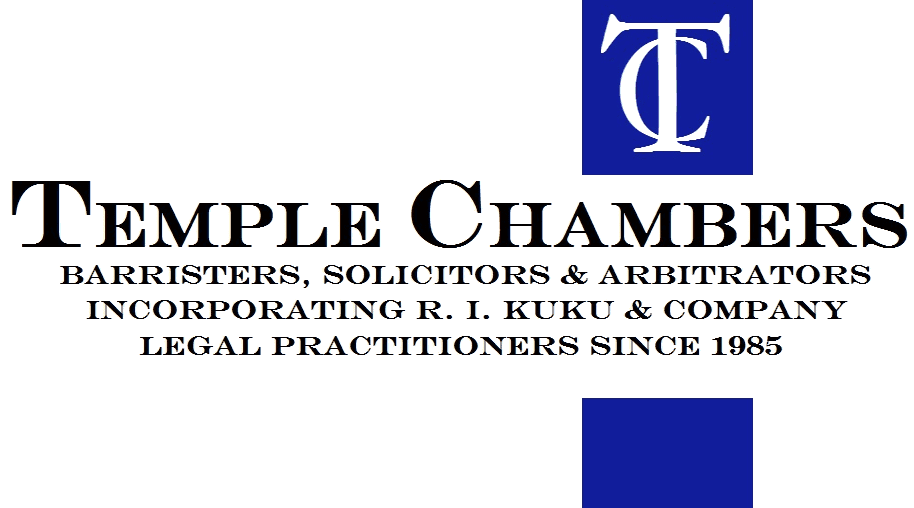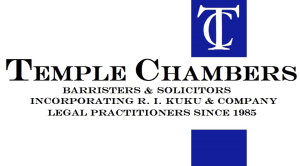- Obekpa House, 15 Mahatma Ghandi Street, Asokoro, Abuja
- (+234) 805 895 1790

- Home
- Our Firm
- Practice Area
- Advocacy
- Communications
- Corporate Law
- Government Relations & Regulatory Compliance
- Intellectual & Industrial Property
- lnsurance Law
- International Business Transactions (Joint Ventures & Mergers)
- International Correspondent Relationships
- Labour Law
- Litigation & Arbitration
- Oil & Gas Law
- Real Estate & Commercial Property
- Taxation
- Articles
- About Us
- Contact Us
Intellectual & Industrial Property
Temple Chambers (Barristers & Solicitors)
Intellectual and industrial property law encompasses the legal frameworks that protect creative works, inventions, and brand identities. This area of law is crucial for law firms advising clients on matters related to patents, trademarks, copyrights, and industrial designs. Effective management and protection of intellectual and industrial property (IP) rights are essential for safeguarding innovations and brand reputations. This document offers a comprehensive exploration of intellectual and industrial property law, illustrating key concepts with real-world scenarios and examples.
Intellectual Property Rights: An Overview
Intellectual property rights are legal protections granted to creators and inventors to incentivise and protect their innovations and creations. These rights are categorized into several types, including patents, trademarks, copyrights, and trade secrets, each serving distinct purposes.
Patents protect new inventions or processes, granting the patent holder exclusive rights to make, use, and sell the invention for a specified period, typically 20 years from the filing date. For example, a law firm may assist a technology company in securing a patent for a novel software algorithm. The firm would guide the client through the patent application process, ensuring that the invention meets the criteria of novelty, non-obviousness, and utility.
Trademarks protect symbols, names, and slogans used to identify and distinguish goods or services. A law firm might represent a client seeking to register a trademark for a new brand of sportswear. The firm would conduct a trademark search to ensure that the mark is unique and advise the client on the registration process with the relevant trademark office.
Copyrights protect original works of authorship, such as literary, artistic, musical, and dramatic works. For instance, a law firm representing an author would handle the registration of copyright for a new book, ensuring the author’s exclusive rights to reproduce, distribute, and display the work.
Trade Secrets refer to confidential business information that provides a competitive edge, such as formulas, practices, or processes. A law firm may help a client protect trade secrets by drafting non-disclosure agreements and advising on measures to prevent unauthorized disclosure.
Patent Law: Detailed Analysis
Patent law is a critical area of intellectual property law that governs the protection of inventions. The patent process involves several stages, including patent search, application filing, examination, and enforcement.
For example, a law firm representing a pharmaceutical company might assist in obtaining a patent for a new drug formulation. The firm would conduct a thorough patent search to ensure that the invention is novel and not already patented. After filing the patent application, the firm would work with patent examiners to address any objections or rejections, ultimately securing patent protection for the client.
In another scenario, a startup developing a new renewable energy technology might seek legal advice on patenting its invention. The law firm would guide the client through drafting a detailed patent application that describes the technology and its advantages, ensuring that it meets the patent office’s requirements.
Trademark Law: Detailed Analysis
Trademark law deals with the protection of brands and identifiers used in commerce. The registration process involves filing an application, examination by the trademark office, and potential opposition from third parties.
Consider a scenario where a law firm represents a company launching a new line of organic skincare products. The firm would assist in trademark registration for the product name and logo, ensuring that the marks are distinctive and do not infringe on existing trademarks. The firm would also advise the client on enforcing their trademark rights against potential infringers and managing trademark portfolios.
Additionally, if a business faces a trademark infringement claim, the law firm would provide legal representation in resolving the dispute, which might involve negotiating settlements or defending against lawsuits.
Copyright Law: Detailed Analysis
Copyright law protects original works of authorship and grants authors exclusive rights to their creations. The registration process involves submitting an application to the copyright office and may include issues related to licensing, enforcement, and infringement.
For example, a law firm representing a film production company might handle copyright registration for a new movie script. The firm would ensure that the script is properly registered to protect the production company’s rights to distribute and exploit the film.
In another case, if an artist’s work is used without permission, the law firm would assist the artist in enforcing their copyright through cease-and-desist letters, negotiations, or litigation to address the infringement and seek remedies.
Industrial Property Law: Detailed Analysis
Industrial property law includes protections for industrial designs, trademarks, and patents related to products and processes. It focuses on safeguarding innovations and design aesthetics that contribute to a company’s competitive advantage.
For instance, a law firm representing a furniture manufacturer might seek protection for a unique industrial design of a new chair. The firm would file an application for industrial design protection, ensuring that the design is novel and has a distinct visual appearance.
In another example, a company with a patented manufacturing process might need legal advice on licensing its technology to other companies. The law firm would draft licensing agreements that outline the terms of use, royalties, and rights and obligations of both parties.
Enforcement and Dispute Resolution
Enforcing intellectual and industrial property rights often involves litigation or alternative dispute resolution methods. Law firms play a crucial role in protecting clients’ IP rights through various legal avenues.
For example, if a client’s patented invention is being used without permission, the law firm might initiate a patent infringement lawsuit. The firm would gather evidence, represent the client in court, and seek remedies such as injunctions and damages.
Similarly, if a client’s trademark is being counterfeited, the law firm would take legal action to stop the infringement, which could involve working with customs authorities to prevent the importation of counterfeit goods and pursuing legal remedies against the infringer.
Useful Links
Get In Touch
Don’t hesitate with your future!
Give Us A Call Today!
© Copyright 2024 - Temple Chambers (Barristers & Solicitors) - All Rights Reserved.

